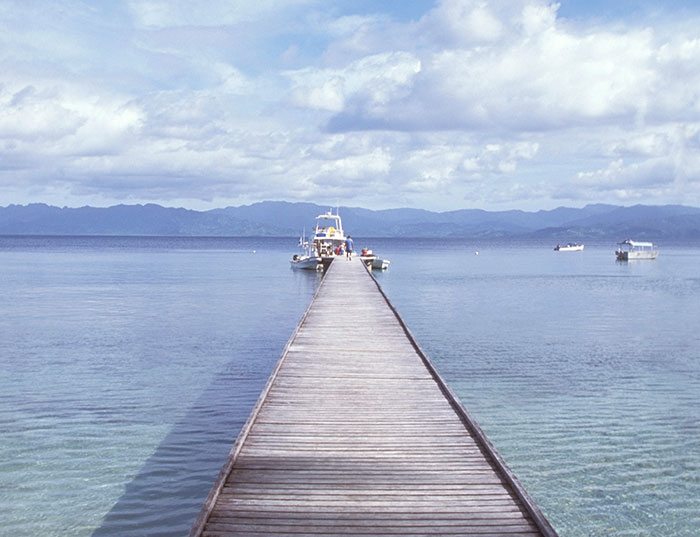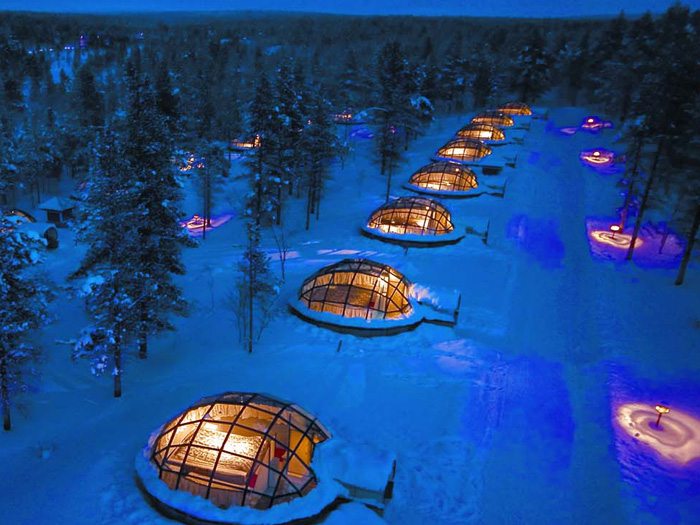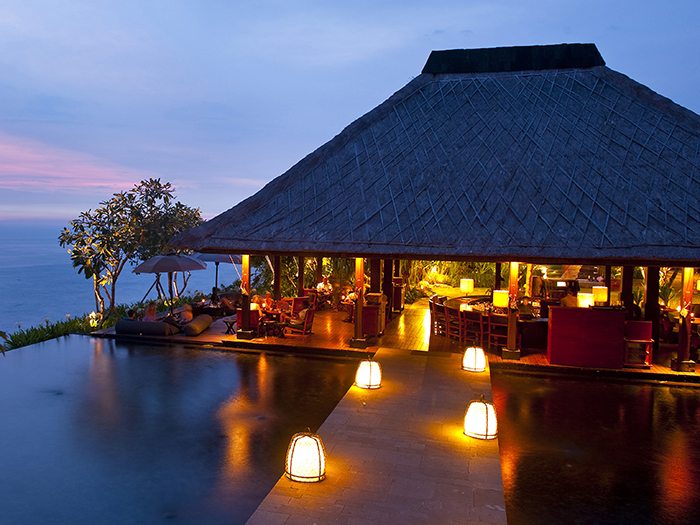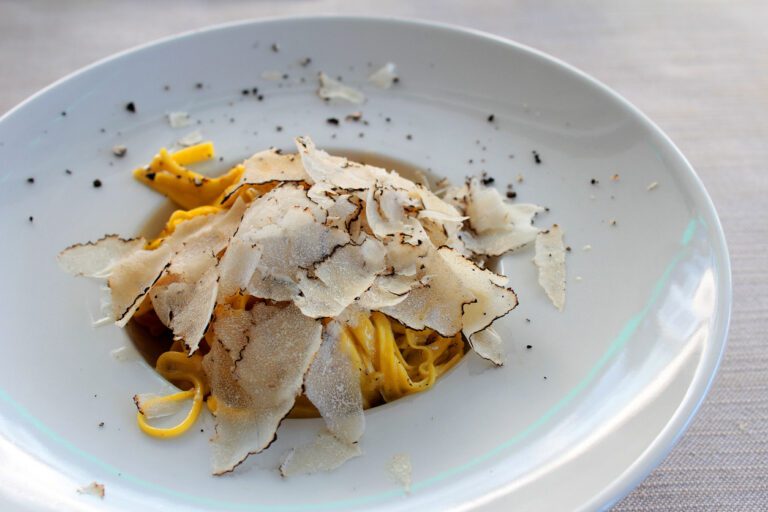Words and Images by Michael McHugh
Imagine a holiday where you can truly relax and feel the joy of living in the moment. A holiday where you can reconnect with the real essence of yourself, your family, and the chance to rediscover what you believe in.
It was only four days, yet I found myself happy just to be still and quiet. I listened to the sounds around me, breathed in the gorgeous smells of ylang-ylang and frangipani, I noticed small things such as the hermit crabs scurrying up the palm trees outside our bure. I laughed a lot, and more importantly I didn’t think about work. I switched off, yet at the same time I switched on.
More and more, I think, when it comes to planning our precious holiday time, we look for something that will meet all of our demands, such as an island getaway including eco-luxury, dedicated to the preservation of the environment and local infrastructure, and a big one for me: rejuvenation.
If every single Fijian island was counted, they would number in the thousands – we landed on the second-largest, Vanua Levu. And just 322 of the islands are considered large enough for human habitation across the 1,290,000 km2 of the “friendly isles” in the South Pacific.

Ninety per cent of Fiji is water. Vanua Levu sits towards the north of the croissant-shaped archipelago surrounded with fringes of bubbling white water. When landing, the runway is lined with swinging palm trees, as well as turquoise-coloured water in the distance. Here, the island itself feels quite different to the larger and more developed Viti Levu island. Driving to the 17 acres of Jean-Michel Cousteau Resort that overlooks Savusavu Bay you cannot help but be swept up in that holiday feeling. Kids run alongside the van on the road to the resort, the tide is full and fish are jumping. After two quick flights, how can paradise be this close?
Jean-Michel Cousteau, the son of Jacques Cousteau who I remember as a child watching on television as he explored different oceans navigating the world in his impressive ship Calypso, is an oceanographer, environmentalist and educator and owns the dive operation L’Aventure at the resort that carries his name.
OFF THE GRID
“Your bure has no television or telephone,” says Helen Regan, the operations manager, as we arrive at the resort. Henry, our 14-year-old, didn’t seem that phased and was keen to get to our ocean front bure. There waiting for us were two local women to give us a foot and Bula Mai massage. Spa remedies are passed down through the generations within the local villages so treatments include local ingredients. As Henry swung in the hammock looking out to the view, my wife and I sat first with our feet in a wooden bowl of water with floating flowers, and then had the most peaceful and relaxing massage, forcing us to relax and fill our minds with the task at hand, our holiday.
Thatched roofs, ceiling fans with a king-sized bed that would fit the captain of the Fijian sevens rugby team and his family, and a sea breeze whispering through our bure, it’s all rather seductive and easy to stop worrying and thinking about work, but rather trying to remember the name of the tipple to order for 5 o’clock drinks. It’s amazing how somehow my memory of life’s simplest pleasures has disappeared. It seems I have acclimatised to island time, or perhaps I am relaxed. I’m not sure I have experienced this before.
Five o’clock rolls round and that means a drink and giant oversized prawn cocktail with dipping sauce. The bar staff will find you wherever you are, which in reality it is the only way to keep time. By our third day, like a whining child I whimpered, “Is it drinks o’clock yet?” Who doesn’t love a cocktail while on holiday?
Before we sat down at our first meal, we were asked, what team we supported? The locals are obsessed with rugby. Each staff member could talk about rugby and their favourite players, why they were their favourites, any potential sightings of any rugby player on the island, the performance of each team. It could go on for days.
The strong family values often see Fijian families living within villages in bures, with extended families grouped around the village, where wages from jobs are shared, and children are looked after by family members. There is a real sense of community. Land ownership has provided Fijians with the security that allows them to preserve their traditional culture.
Almost 84 per cent of Fijian land is communal, owned by the indigenous Fijians and administered by the iTaukei Land Trust Board. The guided rainforest walks and an educational medicinal walk provide information about local plant life and potential effects on the body.
The resort has many initiatives that let holiday-makers get involved with the local villages. The Connect with Kids program allows school-aged kids to spend time at a local primary school, to see a different culture firsthand and to broaden their outlook while travelling. Visiting children are encouraged to become pen pals. Kids of all different cultures play together as we wander around the classrooms. The handwriting is meticulous and precise in their well-loved exercise books, although classrooms lack resources and equipment compared to schools back home.
A new program called School under the Sea, hosted by Jean-Michel Cousteau’s marine biology team, has been introduced. Johnny Singh is the resort’s marine biologist and his depth of knowledge makes him a perfect tutor while out snorkelling and learning to scuba-dive. What is refreshing is his immense knowledge and ability to educate guests of any age, answering any question about the protected marine sanctuary and local region.
As guests stated: “Johnny is cool”, which is high praise and says it all. After a three-day intensive dive schedule and a written exam, Henry now has his scuba-diving credentials and can’t wait to get back and dive again.
“This innovative educational program introduces children aged 6 to 12 to our natural environment and Fijian cultural heritage through the eyes of our resort marine biologists,” says general manager Bart Simpson. “Kids explore the realms of an alternative sustainable future and are rewarded with endless fun.”
GETTING A LOCAL TASTE

Returning to the local town of Savusavu and visiting the local market, where fresh herbs, fruit and seafood were on offer, we bought a lobster, which the resort’s kitchen cooked for dinner. It was at boarding school that chef Raymond Lee realised he had a passion to cook. He would grow eggplants and carrots at boarding school and cook rice in his dorm room for his brother and cousins. He originally learnt his craft at The Regent Hotel in Fiji under the tutelage of German chefs who according to Raymond, “were tough, yet it was the best training ground.” Planting an organic garden and growing produce for the daily menu, Lee’s experience and structure running a kitchen has seen him win several awards over the years.
Having been at Jean-Michel Cousteau Resort for seven years his favourite dishes are pork ribs, snapper and sorbet. Favourite ingredient? “Fresh limes. I love the tang of them, my family is Chinese and lime tastes so exotic,” he says. The impressive organic garden with a large shade house with seedlings and row after row of every vegetable and fruit imaginable, with a chook run in the corner, helps make Raymond’s menus come to life using fresh seasonal produce from this organic paradise.
SURVIVING THE STORM
Walking to dinner along the candlelit jetty is one of those pinch-me moments as the sun sets and a group of divers head out for a night dive. We are joined at dinner by Helen Regan who talks passionately about the staff and renovations since devastating Cyclone Winston hit the region in February 2016.
When the cyclone flattened local Nukubalavu village, Regan and local staff members stayed and ensured the resort was secure. With waves pounding the resort the toll was significant. Eighty per cent of the 220 staff are from local villages and most were affected by the devastation of the cyclone. Homes and villages destroyed, the extensive damage was widespread, with communication lost between villages and islands. “I stayed at the resort and held on,” says Regan.
A group of staffers now affectionately known as her “Winston Warriors” stayed with her that night. “It was frightening but I had a job to do and once children and staff were secure, I returned and basically barricaded us in as the devastation happened around us.”
The damage was widespread, even though much preparation had been undertaken such as cutting down large trees and securing buildings. The resort closed for many months while a rebuild program took place.
Having not visited the resort pre-Winston, it’s hard to imagine what that horrific night would have been like, as a water level is pointed out to me high up in a roof line of one of the buildings, to where the cyclone ravage drove the water.
As Regan says, “It’s all about the people; the essence of the place is the people. Happy staff, happy guests.” It is this resilience and commitment from the locals that makes me realise that we, too, have a part to play in helping the people of this Pacific region regain their livelihoods after the cyclone.
The resort is involved in local initiatives that support economic development, which is very much part of the ethos of the Canyon Group of Companies, which owns the resort. Its method is to acquire and develop small ultra-luxury resorts in unique destinations, and create a compatible sense of community, working alongside the locals.
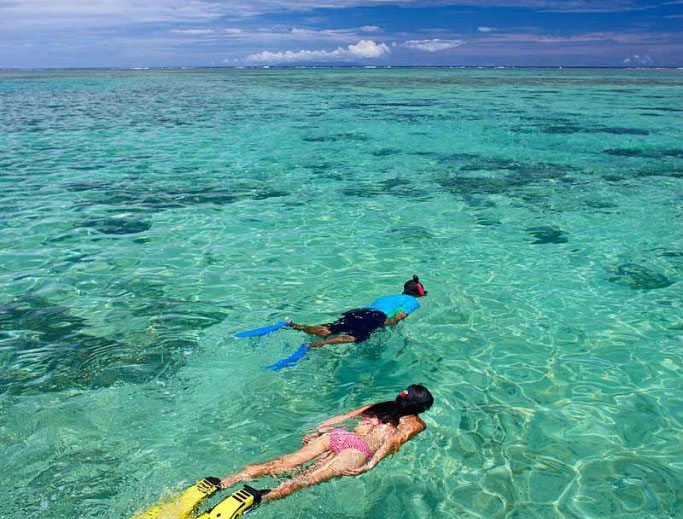
Before we leave we head out to a small private island off the coast of the resort and take a picnic. We swim, we laugh, we lie back and watch the clouds roll by, and I realise then that we have discovered … paradise.
Jean-Michel Cousteau Resort offers an inclusive experience, covering à la carte meals, non-alcoholic drinks, kids’ club, nanny service and Fijian Buddies for older children, wifi, wash & fold laundry service, most resort activities inclusive of five off-site excursions and guided snorkel trips with marine biologist and ground transfers from Savusavu Airport.
Telephone: 1300 306 171 (local call Australia); +61 3 9815 0379.
Email: [email protected]. Website: fijiresort.com.
Fiji Airways flies from major Australian cities to Savusavu via Nadi.


